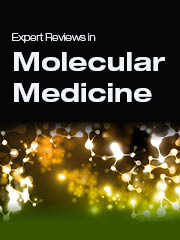Crossref Citations
This article has been cited by the following publications. This list is generated based on data provided by
Crossref.
Peake, N. J.
Khawaja, K.
Myers, A.
Jones, D.
Cawston, T. E.
Rowan, A. D.
and
Foster, H. E.
2005.
Levels of matrix metalloproteinase (MMP)-1 in paired sera and synovial fluids of juvenile idiopathic arthritis patients: relationship to inflammatory activity, MMP-3 and tissue inhibitor of metalloproteinases-1 in a longitudinal study.
Rheumatology,
Vol. 44,
Issue. 11,
p.
1383.
Démarteau, O.
Pillet, L.
Inaebnit, A.
Borens, O.
and
Quinn, T.M.
2006.
Biomechanical characterization and in vitro mechanical injury of elderly human femoral head cartilage: comparison to adult bovine humeral head cartilage.
Osteoarthritis and Cartilage,
Vol. 14,
Issue. 6,
p.
589.
Zainal, Z.
Longman, A.J.
Hurst, S.
Duggan, K.
Caterson, B.
Hughes, C.E.
and
Harwood, J.L.
2009.
Relative efficacies of omega-3 polyunsaturated fatty acids in reducing expression of key proteins in a model system for studying osteoarthritis.
Osteoarthritis and Cartilage,
Vol. 17,
Issue. 7,
p.
896.
Bastiaansen-Jenniskens, Y.M.
Siawash, M.
van de Lest, C.H.A.
Verhaar, J.A.N.
Kloppenburg, M.
Zuurmond, A.-M.
Stojanovic-Susulic, V.
Van Osch, G.J.V.M.
and
Clockaerts, S.
2013.
Monounsaturated and Saturated, but Not n-6 Polyunsaturated Fatty Acids Decrease Cartilage Destruction under Inflammatory Conditions.
CARTILAGE,
Vol. 4,
Issue. 4,
p.
321.
Swellam, Menha
Gabal, Khadiga M. Abu
and
Youssef, Samar Samir
2013.
Interleukin‐1 receptor antagonist gene polymorphism and hepcidin in rheumatoid arthritis: Correlations with clinical and laboratory indices of disease activity.
IUBMB Life,
Vol. 65,
Issue. 10,
p.
883.
2013.
Articular Cartilage.
p.
51.
Sakata, Shuhei
Hayashi, Shinya
Fujishiro, Takaaki
Kawakita, Kohei
Kanzaki, Noriyuki
Hashimoto, Shingo
Iwasa, Kenjiro
Chinzei, Nobuaki
Kihara, Shinsuke
Haneda, Masahiko
Ueha, Takeshi
Nishiyama, Takayuki
Kuroda, Ryosuke
and
Kurosaka, Masahiro
2015.
Oxidative stress‐induced apoptosis and matrix loss of chondrocytes is inhibited by eicosapentaenoic acid.
Journal of Orthopaedic Research,
Vol. 33,
Issue. 3,
p.
359.
Lee, Ka-Heng
Abas, Faridah
Mohamed Alitheen, Noorjahan Banu
Shaari, Khozirah
Lajis, Nordin Haji
Israf, Daud Ahmad
and
Syahida, Ahmad
2015.
Chemopreventive effects of a curcumin-like diarylpentanoid [2,6-bis(2,5-dimethoxybenzylidene)cyclohexanone] in cellular targets of rheumatoid arthritisin vitro.
International Journal of Rheumatic Diseases,
Vol. 18,
Issue. 6,
p.
616.
Zhang, Hai-Bin
Zhang, Ying
Chen, Cheng
Li, Yu-Qing
Ma, Chi
and
Wang, Zhao-Jun
2016.
Pioglitazone inhibits advanced glycation end product-induced matrix metalloproteinases and apoptosis by suppressing the activation of MAPK and NF-κB.
Apoptosis,
Vol. 21,
Issue. 10,
p.
1082.


